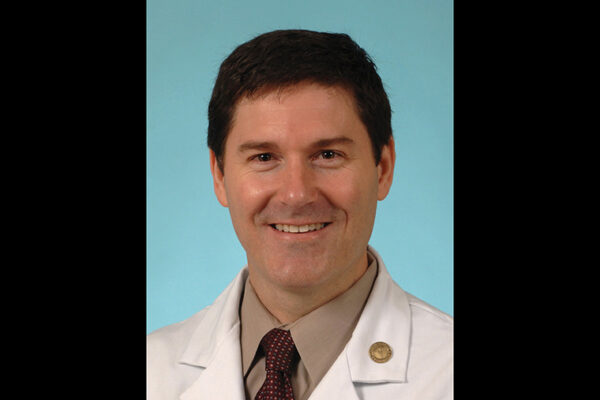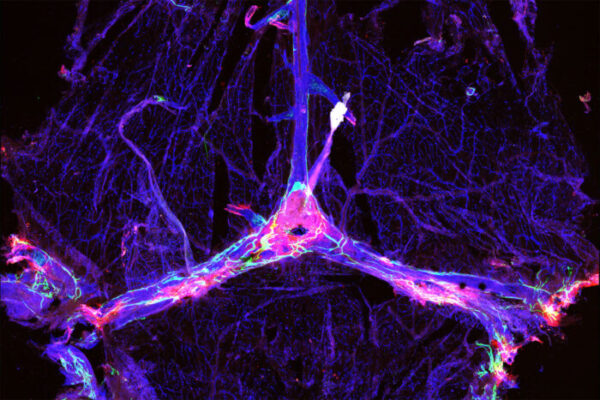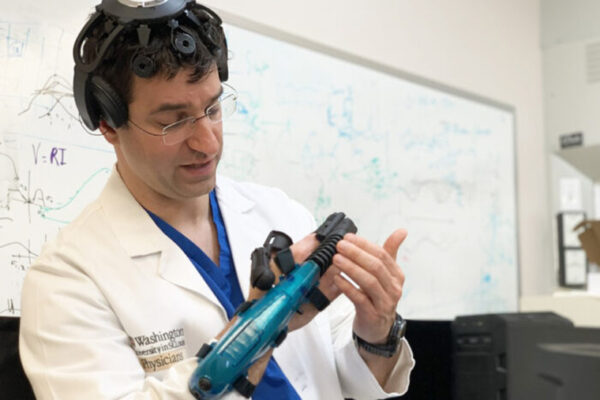Darcy receives Gold Medal from interventional radiology society
Michael D. Darcy, MD, professor of radiology and associate professor of surgery at Washington University School of Medicine in St. Louis, has been awarded a Gold Medal from the Society of Interventional Radiology.
Sugar-sweetened drinks linked to increased risk of colorectal cancer in women under 50
A new study led by the School of Medicine has found a link between consuming sugary drinks and an increased risk of colorectal cancer among women under 50. The findings could help explain the rising rates of colorectal cancer among younger adults.
Michael E. Hughes, assistant professor of pulmonary medicine, 41
Michael Evan Hughes, a neuroscientist and chronobiologist highly respected for his research at the School of Medicine, died May 4 at his home in St. Louis after a six-year battle with brain cancer. He was 41. A public celebration of life will be held Saturday, May 8, in Olivette, Mo.
Hammond receives Merck research fellowship
J. Gmerice Hammond, MD, a cardiologist and health policy research fellow in the Cardiovascular Division at Washington University School of Medicine, has received a Merck Fellowship Research Award from the Association of Black Cardiologists and the American College of Cardiology.
FDA menthol ban would benefit Black, younger Americans
The U.S. Food and Drug Administration’s proposed ban on menthol flavored cigarettes and all flavored cigars could be particularly beneficial for Black and young people, says an expert on tobacco control at Washington University in St. Louis.
Elson elected to National Academy of Sciences
Elliot Elson, of Washington University School of Medicine, has been elected to the National Academy of Sciences. Election to the academy is considered one of the highest honors that can be awarded to a U.S. scientist or engineer.
Limbrick appointed to St. Louis Regional Health Commission
David D. Limbrick, MD, PhD, the T. S. Park, MD, Professor of Pediatric Neurosurgery at the School of Medicine, has been appointed to the St. Louis Regional Health Commission as the representative from the School of Medicine.
Draining brain’s debris enhances Alzheimer’s therapies in mice
New research in mice has shown that some investigational Alzheimer’s therapies are more effective when paired with a treatment geared toward improving drainage of fluid and debris from the brain, according to a study led by researchers at Washington University School of Medicine.
Stroke-recovery device using brain-computer interface receives FDA market authorization
A first-of-its kind device that helps people disabled by stroke regain significant control over their arm and hand function by using their minds has received market authorization from the Food and Drug Administration. The system developed by Neurolutions Inc., a WashU startup, relied on innovative multidisciplinary research at the university.
Researchers to study impact of IBD meds on COVID vaccine
The School of Medicine received a $1.3 million grant from The Leona M. and Harry B. Helmsley Charitable Trust to support the work of Parakkal Deepak, MBBS, and Alfred H.J. Kim, MD, PhD. They will study antibody responses after vaccination against SARS-CoV-2 in patients with inflammatory bowel disease and other autoimmune diseases.
Older Stories







